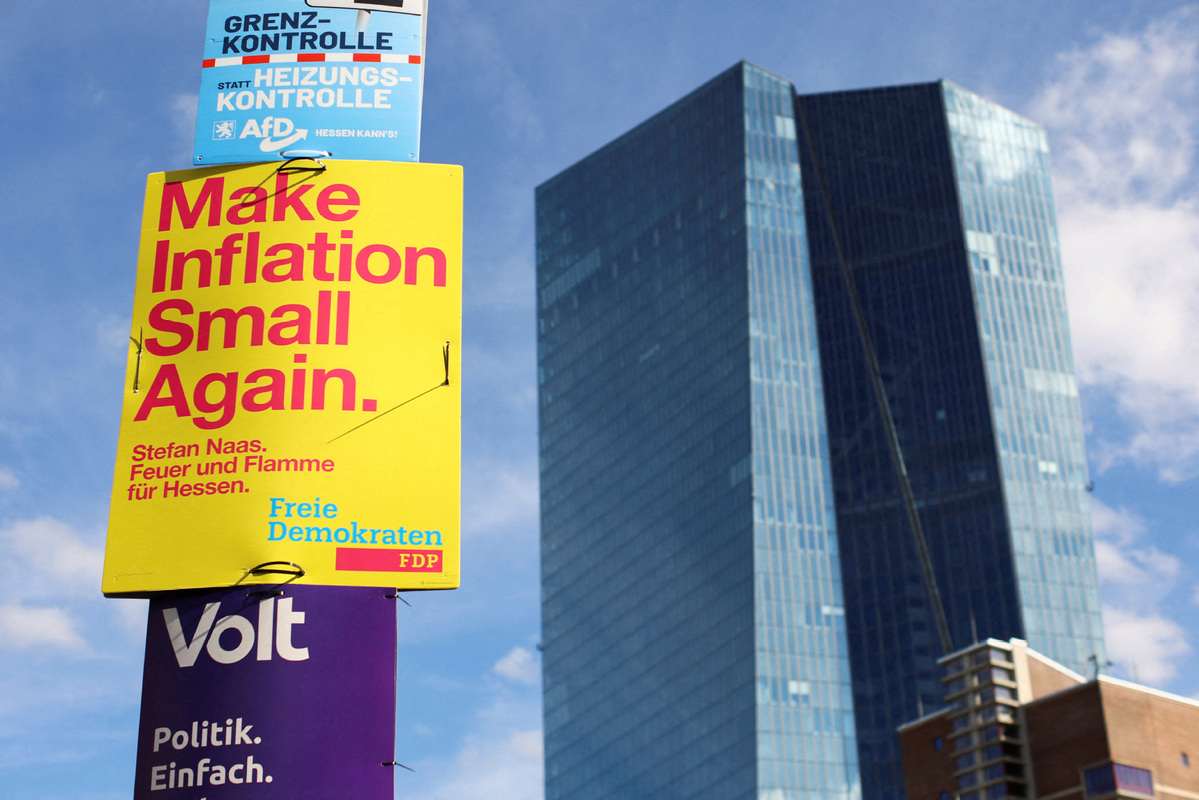ECB cuts interest rates across Europe


The European Central Bank, or ECB, has cut interest rates for the first time in nearly four years, bringing them down from a record high of 4 percent to 3.75 percent, prompting speculation that the Bank of England, or BoE, and the United States Federal Reserve could follow suit, sooner rather than later.
A statement issued by the governing council of the ECB on Thursday said: "Based on an updated assessment of the inflation outlook, the dynamics of underlying inflation and the strength of monetary policy transmission, it is now appropriate to moderate the degree of monetary policy restriction after nine months of holding rates steady."
Lindsay James, an investment strategist at Quilter Investors, told broadcaster CNBC that the widely-anticipated decision "fired the starting gun", and could prompt other major central banks to take action of their own.
"(Central banks) will not want to diverge too far from one another, and with political risk being ratcheted up, they also won't want to be seen as too influential," she said, adding that the decision ended "one of the most aggressive and swift rate hiking cycles in modern times".
Interest rates have stayed high in a bid to keep inflation under control, but as a consequence, they have hampered economic growth.
The move, James added, would impact the 20 countries in the eurozone by "breath(ing) life into an economy that desperately needs some form of stimulus".
Katherine Neiss, chief European economist at investment company PGIM, told the BBC she was "reasonably confident" there would be another ECB cut in the summer or fall, taking the figure down to 3.5 percent or maybe lower by the year's end.
"Growth is encouragingly recovering from the recession that the euro area went through toward the end of last year, but it's still sluggish," she added.
Although inflation in the United Kingdom has fallen to 2.3 percent, close to the BoE's long-stated target of 2 percent, interest rates remain at 5.25 percent.
The next interest rate decision from the BoE, which is independent of the government, is due on June 20, and although there have been calls for a cut, the fact there is a general election campaign going on at the moment could impact whether or not one is made because of the political sensitivity of any change during the campaign.
"If they cut, it'll be political, if they don't cut it'll be political," said George Godber, an analyst at Polar Capital.
He added that he expected to see a rate cut in the US in the coming months, with the country also facing an election, this one presidential, in November.































